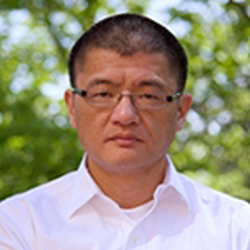Bin XuAssociate Professor
Education
- Ph.D. in Sociology, Northwestern University, 2011
- M.A. in Sociology, University of California, Davis, 2005
- B.A. in Politics, East China Normal University, China, 1996
Biography
I am an Associate Professor in the Department of Sociology at Emory University.
My research interests are situated at two intersections. The first intersection is within the disciplinary boundary of sociology: between cultural sociology and political sociology. The second intersection is between two broader “fields”: general sociology and China studies. My primary identity is a cultural/political sociologist, but I also have enjoyed the cross-fertilization between sociology as general social science and China studies as a field of area studies. I adopt multiple social scientific methods, including ethnography, interviewing, discourse analysis, and historical analysis. My ultimate intellectual goal is twofold: to develop generalizable knowledge without sacrificing sensitivity to context-specific processes and local knowledge; to address important public issues without losing scientific rigor and intellectual depth.
This research agenda has been reflected in two interrelated lines of research.
The first line of my research interest focuses on civil society, particularly civic engagement, volunteering, the voluntary sector, and state-civil society relations. In my empirical work, I have addressed how a burgeoning civil society under authoritarianism interacts with the state—in my case, contemporary China—and how citizens and organizations understand the meanings of their civic engagement in an undemocratic context. This topic is addressed in my book The Politics of Compassion: the Sichuan Earthquake and Civic Engagement in China (2017, Stanford University Press), which has received positive reviews from more than ten journals and won the Mary Douglas Prize for Best Book in the Sociology of Culture from American Sociological Association (2018) and Honorable Mention for Best Book on Asia/Transnational from American Sociological Association (2018). The book draws on extensive data from interviews, observations, and textual materials to examine how individual volunteers, associations, and nonprofit organizations who participated in the rescue and relief effort after the Sichuan earthquake acted on the ground, how they understood the meaning of their action, and how the political context shaped both their actions and the meaning they attributed to them. This book not only provides a window on the world of civic engagement, volunteering, and voluntary sectors in contemporary China but also contributes to the cultural sociology of civil society by revisiting Tocqueville’s “habits of the heart” thesis in an authoritarian context.
My theoretical work on civil society advocates and develops a cultural sociology of civil society with a focus on empirical examination of moral-political values, civil society actors’ interpretations of the values, and norms of interactions in civic engagement. This theoretical thinking was presented in a theoretical book that provides the first systematic survey of the cultural sociology of civil society and offers a committed global perspective on pressing issues in today’s world: The Culture of Democracy: A Sociological Approach (Polity, 2022). In the book, I demonstrate that civil societies remain vibrant, animated by people’s belief that they should and can solve such issues and build a better society. Central to this cultural aspect of civil society is the “culture of democracy,” including normative values, individual interpretations, and interaction norms pertaining to features of a democratic society, such as civility, independence, and solidarity. The culture of democracy varies in different contexts and faces challenges, but it shapes civic actions, alters political and social processes, and thus is the soul of modern civil societies.
Second, collective memory. I have published a book and a few articles on the collective memory of China’s “educated youth” (zhiqing) generation—the 17 million Chinese youth sent down to the countryside in the 1960s and 1970s. I draw on the data collected from 2007-2018, including life history interviews, ethnography, and archival research, to address how members of this important generation interpret meanings of their past difficulties and sufferings in the countryside, how those interpretations are represented and expressed in autobiographic memories, cultural objects, and commemorative activities, and what their memories tell us about this generation’s mentality. This project aims to understand the Maoist legacy by reading the minds and hearts of those “Chairman Mao’s children.” It also aims to generate a theoretical framework from Karl Mannheim’s and Pierre Bourdieu’s theories to address a few general issues related to generation, class, and memory. The book, titled Chairman Mao’s Children: Generation and the Politics of Memory in China, was published by Cambridge University Press in 2021. My previous work on collective memory also deals with WWII memories in China, nationalism, mourning, and disaster and trauma.
My articles have appeared in leading journals. I have won awards and grants from the American Sociological Association (ASA), National Science Foundation (NSF), and American Council of Learned Societies (ACLS), among others.
Please visit my personal website (www.binxu.net) for more information and news.
